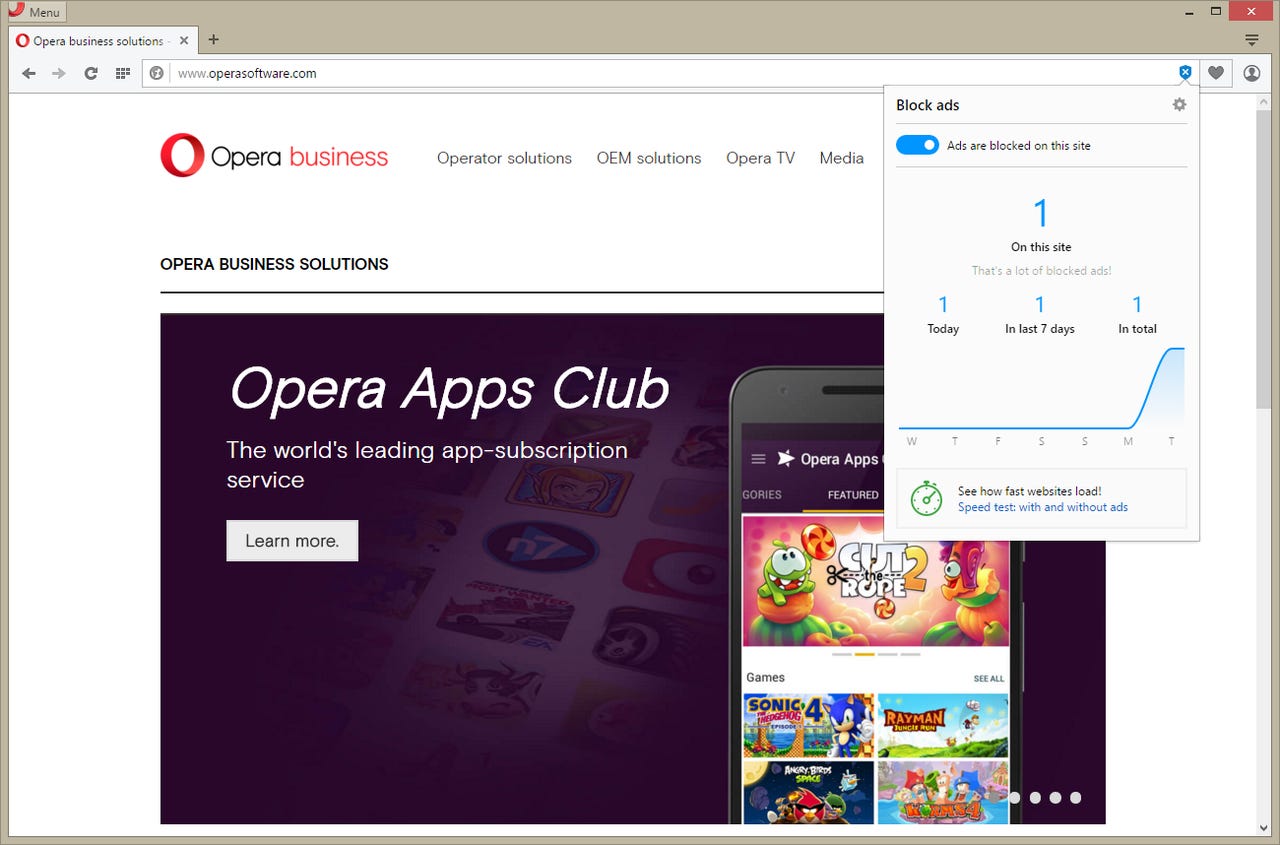Opera's new ad-blocking browser strikes back at 'bloated' web


Opera attributes speed gains to the ad-filtering occurring at the web rendering engine level.
Opera Software has today unveiled a new version of its desktop web browser, featuring advert-blocking technology built into the webpage rendering engine.
According to Opera's own testing, the ad-blocking feature will dramatically increase the speed of webpage loading for the new developer version of the browser, which is now available for download.
Opera, which last month received a $1.2bn buyout offer from a consortium of Chinese internet firms, said the reason for the change of approach is to provide a better user experience of a web that's bogged down by advertising and tracking.
See also
"Advertising fuels the internet, allowing for many services to be free for users. But, as our new research shows, most webpages today are significantly slowed down by bloated ads and heavy tracking," Krystian Kolondra, Opera SVP of engineering, said in a statement.
"We don't accept it. We want the web to be a better place for us all, as users."
The Norwegian software firm promises up to 90 percent faster loading of webpages with the Opera desktop developer version, compared with browsing with the option disabled.
The company also said the built-in feature will perform on average 40 percent better than third-party ad-blocking browser extensions.
Opera attributes the speed gains to the way its ad-filtering occurs at the web rendering engine level, where the browser itself has full control over the loading process of the webpage. This execution level is inaccessible to plugin blocking extensions.
The figures from Opera's own testing measure the page-loading time for 66 different popular websites, comparing its own browser with Google Chrome and Mozilla Firefox, both equipped with the popular Adblock Plus extension plugin.
Opera also tested its new browser against Microsoft Edge, which doesn't yet have any ad-blocker extensions. Each webpage was tested 15 times, without emptying the page cache, to simulate real world use. The testing was done on an up-to-date Windows 10 PC.
According to the company, the use of ad-blocking software grew by 41 percent worldwide and by 48 percent in the US between the second quarter of 2014 and the second quarter of 2015, with 98 percent of those users on PCs.
Opera said this growth can be attributed to an increased frustration experienced by users because of the slowed web browsing that adverts can cause.
Read more about Opera
- Opera gets $1.2 billion buyout offer from mix of Chinese firms, board recommends deal
- How Opera's latest Android test build brings home the Bluetooth beacon
- Why Samsung, Xiaomi plus 12 Android smartphone brands are shipping with Opera Max
- Browser maker Opera eyes a possible sale
- Saving data: Opera for Android adds video playback compression
- The Vivaldi browser offers an easy upgrade from Google Chrome